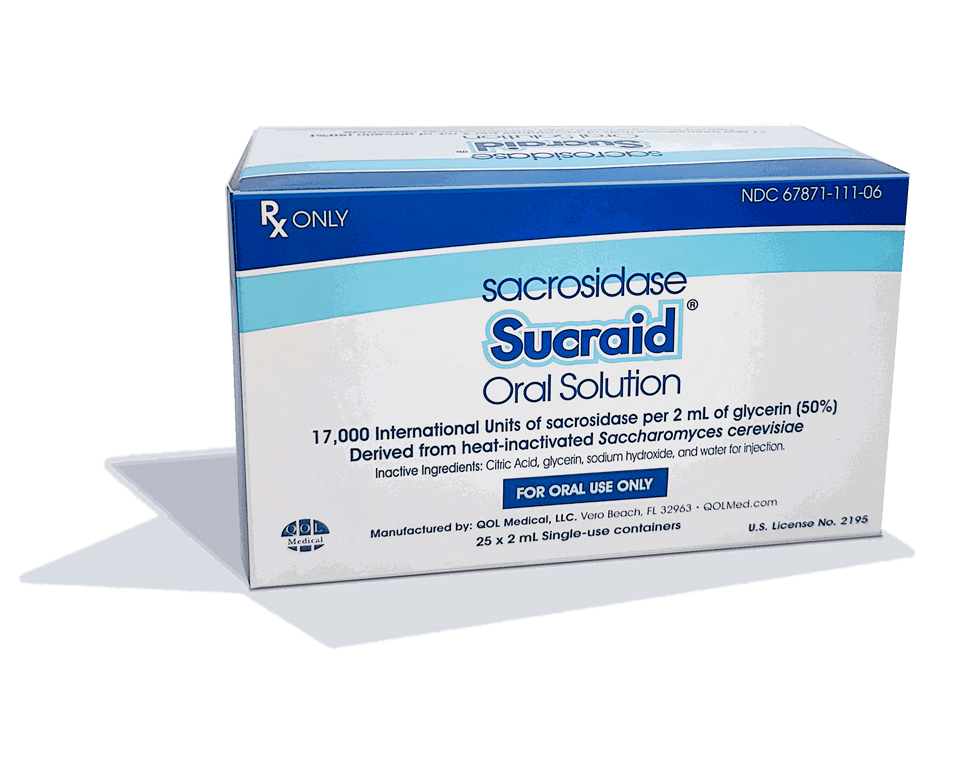Dosing
Dosage and Administration
Please follow the dosing instructions carefully.
In This Section
The recommended Sucraid® dose is based on one’s body weight
The proper Sucraid® dose depends on the patient’s body weight.
- For individuals who weigh up to 33 lb (15 kg), the Sucraid® dose is 1 mL
- For individuals who weigh more than 33 lb (15 kg), the Sucraid® dose is 2 mL
Sucraid® is available two ways, in bottles that contain 118 mL (4 fluid oz) and single-use containers that each hold a 2-mL dose.
Recommended dosing for Sucraid® bottles:
- 1 mL (8,500 IU, one full measuring scoop) per meal or snack for patients up to 33 lb (15 kg) in body weight
- 2 mL (17,000 IU, 2 full measuring scoops) per meal or snack for patients over 33 lb (15 kg) in body weight
Each Sucraid® dose should be diluted in 4 ounces of water, milk or infant formula. Sucraid® can be measured with the 1 mL-measuring scoop (provided).
Recommended dosing for Sucraid® single-use containers:
The contents of the Sucraid® 2-ml single-use container should be diluted in 4 ounces of water, milk, or infant formula. Patients should consume:
- all of the mixed solution dose per meal or snack for patients over 33 lb (15 kg) in body weight
- half of the mixed solution dose per meal or snack for patients 33 lb (15 kg) and less

Administration, Storage, and Shelf Life
The following should be noted with regard to the administration:
- Half of each dose should be taken before the meal and the other half during the meal
- The beverage or infant formula used to dilute Sucraid® should not be heated, nor should Sucraid® be added to hot beverages, as heat can decrease the potency of the enzyme
- Sucraid® should not be reconstituted or consumed with fruit juices, as the acidity may impair enzyme activity
- For patients 33 lb (15 kg) and less using the Sucraid® 2-ml single-use container, the second half of the mixed solution should be refrigerated and discarded if not used within 24 hours
Storage and shelf life of Sucraid®:
- Sucraid® should be refrigerated at 36°F to 46°F (2°C to 8°C) and protected from heat and light
- Bottles of Sucraid® should be discarded four weeks after first opening due to the potential for bacterial growth
- Single-use containers of Sucraid® can be removed from refrigeration and stored at 15°C to 25°C (59°F to 77°F) for up to 3 days (72 hours)
Healthcare professionals may recommend that patients avoid dietary sources of starch for the first two weeks of Sucraid® treatment, then gradually add starch back into the diet while monitoring symptoms, as Sucraid® does not address isomaltase deficiency.



